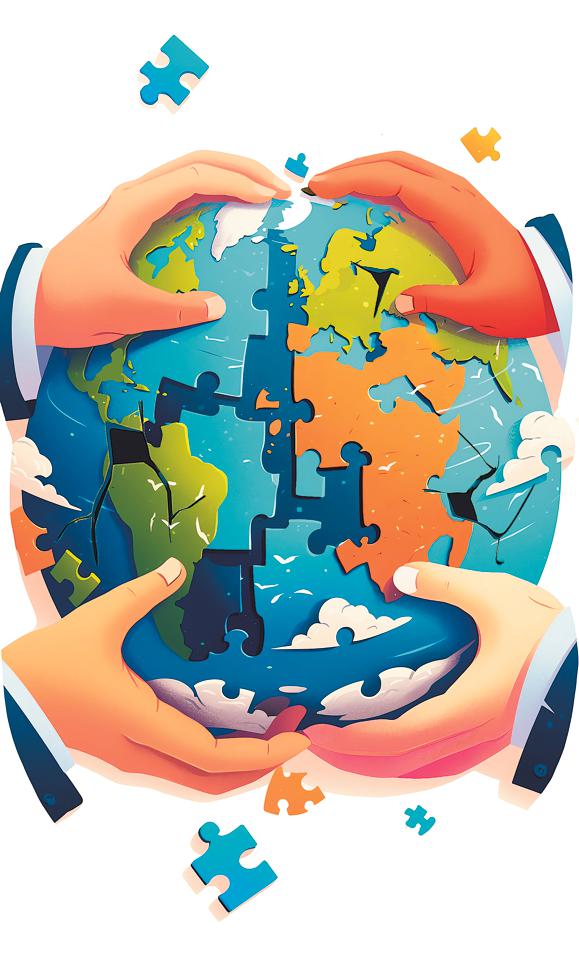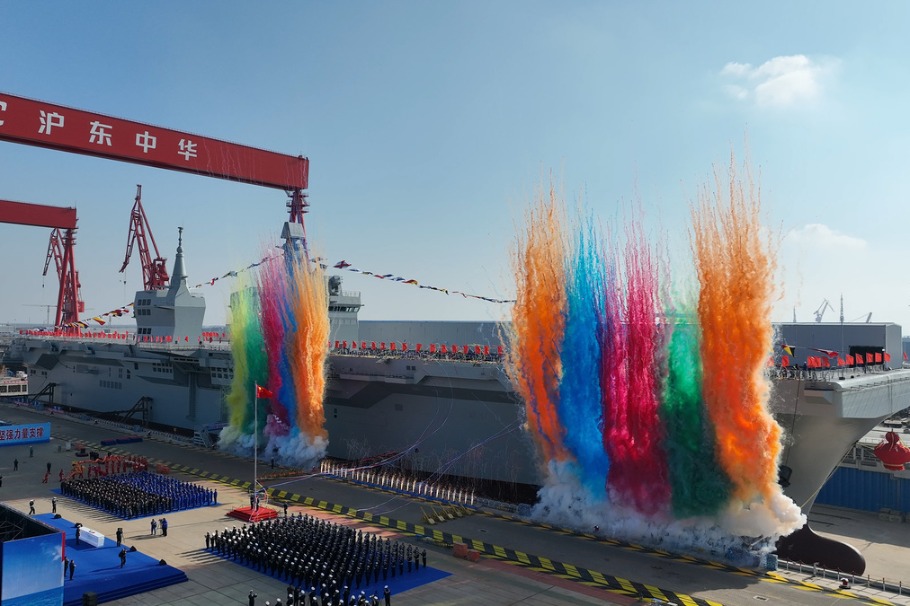Complementary keys
Reciprocity and dialogue essential to unlock the respect and trust necessary to prevent misunderstandings among nations


The world is becoming increasingly complex, and we are confronting an unprecedented accumulation of challenges and misunderstandings among nations.
First, the frequency of crises has escalated. From the Asian financial crisis in 1997 to the bursting of the internet bubble in 2001-02, the subprime mortgage crisis, the sovereign debt crisis, the COVID-19 pandemic, and now, the Great Inflation. We are also witnessing a resurgence of conflicts, in places such as Ukraine and Gaza.
In the West, there is a voter rebellion fueled by populist claims and anger. Simultaneously, we are witnessing an unprecedented global transition on several fronts: Geopolitical, with the confrontation between the United States and China; technological, with disruptive advancements, particularly in artificial intelligence; and ecological, with the looming threat of climate change, which disproportionately affects the most disadvantaged nations in the Global South. These shifts have profound consequences, especially in terms of migration, significantly impacting human lives and North-South relations.
In this context, there is a heightened risk of escalating tensions due to two main factors. The first is the deregulation of force, intensified by multiple military interventions, such as those in Kosovo (1999), Iraq (2003) and Libya (2011). This has been accompanied by a challenge to international law, most notably by Russia in Ukraine since 2014 and 2022, and by Israel's noncompliance with United Nations resolutions since 1948.
The second factor is the polarization of the international system. The rivalry between the United States and China is gradually forcing countries to choose sides, even as many strive to remain non-aligned or multi-aligned. Strategic, economic, commercial, and technological motivations all play a role in this rivalry.
If unchecked, these risks of escalation and polarization could lead to the entanglement of blocs, deepening global divisions. This rivalry is particularly evident in Asia, the Pacific, and the South China Sea. The US is strengthening its position through new alliances such as the Quad and AUKUS, while China is expanding its influence through initiatives such as the Belt and Road and its closer ties with Russia, as well as launching the Global Security Initiative aimed at addressing global contemporary challenges.
This entanglement must be understood in the context of a globalization of conflict, pushing us toward a "global war" without limits, amplified by the interdependencies created by globalization, which heighten the danger.
This risk is further exacerbated by global vulnerabilities: a lack of leadership at the state level to address imbalances, a weakened multilateral system hampered by the veto power of major nations in the Security Council, and criticized for its lack of representativeness. Additionally, the world faces unpredictability due to an ongoing historical transition characterized by de-Westernization and deglobalization.
Adding to these challenges is the threat of technological disruption, which is transforming the traditional economic system. This disruption affects all areas, including digital technologies, big data, the internet of things and quantum internet, 5G and robotics. It also impacts strategic sectors such as defense, energy, health and education, with a strong symbolic dimension evident in the battles over TikTok and Huawei in the US. This technological pressure creates uncertainties about employment, international trade, generational equity and the balance between developed and developing countries, with the risk of new speculative bubbles and the emergence of monopolistic cycles favoring the most powerful nations.
In the face of these destabilization risks, the international community has a responsibility. The European Union, in particular, must work to ease tensions between blocs. Europe and China should explore new approaches, perhaps serving as a laboratory for a new form of globalization.
It is also in the interest of the emerging world to avoid power polarization, as seen in the formation of the BRICS+ grouping and the Shanghai Cooperation Organization.
The spirit of cooperation must be central to security at all levels — climate, food, energy and financial security — relying on states as the best bulwark against insecurity and instability. This cooperative spirit must also promote peace between nations and the protection of the environment and culture. Cooperation is a necessary condition for effective multilateralism in combating terrorism, preventing nuclear proliferation and facilitating peaceful conflict resolution.
This spirit of cooperation must not only be upheld at the state and multilateral institutional levels but also within the business community through a commitment to respect common rules and reciprocity in trade, investment and market access. This framework is essential to avoid the risk of protectionist escalation or trade wars in strategic sectors such as solar panels, electric batteries and semiconductors.
Reciprocity and dialogue are complementary keys. It is crucial for Europeans and Chinese to address all subjects, even the most challenging, to find solutions that align with our shared interests. In these exceptionally grave times, we need dialogue, respect and trust.
The author is former prime minister of France and distinguished professor at China Europe International Business School. The author contributed this article to China Watch, a think tank powered by China Daily. The views do not necessarily reflect those of China Daily.
Contact the editor at [email protected].


































